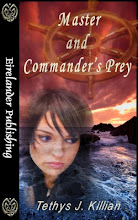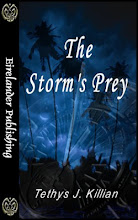Ever noticed when you read something that it seems, I dunno, flat? I've noticed this happening more and more, not just in books, but in writing in general (articles, reports, reviews). No one seems to be using words as a tool any longer!
A teacher once told me - paint with your words. At the time, I had figured this out to mean, use descriptives and visual phrases to portray what you want to convey. For example, the character is feeling down and goes, My life has just gone down in the dumps. You clearly get the visual, of a life being flushed away, going down, in a spiral of oblivion. It paints an image for you in your mind.
As a writer, the only tool you have at your disposal to achieve the aim of creating a memorable story and characters that leap off the page is WORDS.
Yup, words. There's so much behind a word! Ever stopped to think, why did the author use this word and not that one? What does he/she want me to grasp because of this specific word used at this point?
Some authors use words in ways that are out fo the bounds of simple tools. They use words that form a story within a story, a different layer to the plot, that you'd catch only if you were in tune with the writing and not just glossing over the words. This is very much a trick of literature, but popular fiction authors use them too. To see an example, check the free read up at Eirelander Publishing (The Tides of Yule).
I will say it frankly - few of us can expect to write a story within a story. That's deep symbolism that takes time and craft and lots of practise to master. But here's what you can do - you can use words and all that is associated with it.
Words have meaning, and this too takes different levels. Denotative, connotative, symbolic, mythical, and ideological meaning. All this can be layered inside a word you use in your story.
Denotative meaning - refers to the common sense meaning of something.
For example, a skeleton is just that - a collection of bones that form the human body structure. Used in a denotative meaning, it can show a corpse.
Connotative meaning - meaning which has to be deduced by the reader. Its meaning is not obviously apparent at first glance.
For example, you say, the skeletons on the catwalk. This shows a negative connotation, as in a living body is not a collection of bones. See how this immediately springs a visual and creates deeper layer to your writing.
Symbolic meaning - general/constructed meaning which is derived from the sign.
For example here, a skeleton when used can symbolise death, horror, spooky, or even Halloween. It 'stands' in the place of something to convey a meaning.
Mythical meaning - refers to meanings constructed by society through connotative meaning to derive a mythical meaning that can even be said to border on symbolism.
Using the skeleton on catwalk example, this throws you to the myth of the anorexic, skin-on-bones, bone-bag model, or what modelling now stands for.
Ideological meaning - refers to meaning at the service of power.
This one pertains more to the use of a word to project/portray power in the view of achieving a goal.
For example, a slogan by curvy women who go, Real women are no skeletons. The word skeleton here is used in its denotative, connotative, symbolic and mythological meanings to empower these women in this forceful, hit-right-where-it-impacts statement. It is thus meaning that is used in the service of power.
All of these help to create layers in your story. Another example (taken from the start of the upcoming Eirelander release Love Beyond Time by Rebecca Royce) is the use of a staff.
At the start of this book, we are introduced to an old man. He is walking towards the rise of a grassy hill, but the way up is hard for him, as the elements are fighting against him, conjured up by evil powers who want to destroy the man, Abraxas. In his hands is a staff. He uses it to lean on through his trek.
A staff is what? Something like a walking stick (denotative meaning), which however, connotes power in the realm of the paranormal/fantasy. Symbolically, a staff represents power, magic, authority. The fact that Abraxas is old, coupled with the fact that he has the staff, already portrays him in the light of the authority figure, the leader, the wise one. And the fact that he has a staff and not a spear goes to another layer to show the reader that he is a wise one, a spiritual leader, and not a warrior who would have a spear (a weapon) in his hands.
Little details like this help you to paint a deeper and more intricate picture. I agree - not everyone will automatically 'get' what you'd be trying to say, but those who will, to them reading your words will not just be a reading experience but it will transcend their minds as something that engages their imagination and intellectual skills in a deeper manner.
Any questions, just holler!
Aasiyah Qamar - Cultural Romantic Fiction, With a Twist
Available Now!! - Light My World - Eirelander Publishing
Nolwynn Ardennes - The Promise of Fulfilment
Coming out January 8, 2010 - Storms in a Shot Glass - Eirelander Publishing
Coming out July 2, 2010 - Walking on the Edge - Eirelander Publishing
Aasiyah Qamar/Nolwynn Ardennes - Romance the world over
http://www.aasiyah-nolwynn.webs.com/
Thursday, October 15, 2009
Word Associations
Labels:
Aasiyah Qamar,
craft,
layering,
meaning,
Nolwynn Ardennes,
symbolism,
words,
writing
Subscribe to:
Post Comments (Atom)





.jpg)
.jpg)






1 comment:
Z, I know you're going to be a great write some day because you get what it takes to get there.
Great post, dear.
Post a Comment